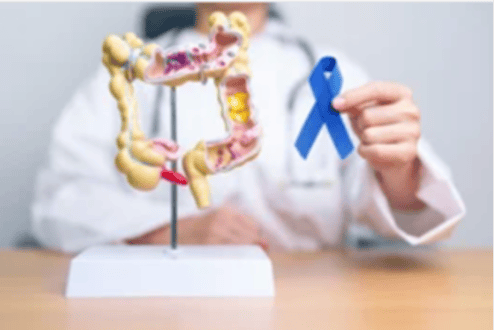APC Gene Mutation

Information about Inherited Gene Mutations
What is the gene?
is a type of gene known as a tumor suppressor gene. When the gene works properly, it can keep cancer from developing.
Which cancers are associated with an mutation?
People with a mutation in the gene have an increased risk for cancer, particularly, colorectal cancer.
mutations and their related cancer risks are typically divided into 3 categories:
- Familial adenomatous polyposis (FAP)
- Attenuated FAP (AFAP)
- I1307K
The lifetime cancer risks for people with an mutation are very different depending on the type of mutation they have. People with FAP and AFAP have a very high risk for cancer. People with an I1307K mutation have a slightly increased risk for cancer.
If your genetic test found an mutation, it is important to know which type of mutation you have. Speak with a genetics expert to ensure that you have the most up-to-date information about your cancer risks and risk-management options.
What is FAP? What is AFAP?
"Familial adenomatous polyposis" (FAP) and "attenuated FAP" (AFAP) are caused by mutations in the gene. These conditions are rare, occurring in about one in 10,000 people. People with FAP may develop hundreds to thousands of in their colon and rectum, often beginning in their teenage years or early adulthood. AFAP is a milder subset of FAP that tends to begin at a later age than FAP. People with AFAP may develop dozens rather than hundreds or thousands of colon and rectal .
What is the mutation I1307K?
People who test positive for an I1307K mutation do not develop FAP. The I1307K mutation causes a slightly increased risk for colorectal cancer beginning in adulthood.
This mutation is common in people of Eastern European Jewish ethnicity, occuring in 7% of this population.
The I1307K mutation is sometimes also referred to as c.3920T>A or p.Ile1307Lys.
What can people with an mutation do?
Risk-management recommendations for people with FAP and AFAP begin at a young age and continue throughout their life. It's important that people seek care from healthcare providers with expertise in managing risk in people with FAP.
There may be other medical concerns for people with FAP or AFAP, including cancer risks for children beginning at a young age.
For people with an I1307K mutation, risk-management recommendations may include more frequent colorectal cancer screenings beginning at a slightly younger age than people in the general population.
If you test positive for an mutation, you should inform your close blood relatives (first-, second-, and third-degree relatives) about your test results and encourage them to speak with a genetics expert.
More detailed information for people with inherited mutations is highlighted below.
Get notified when updated information becomes available.
SIGN UP FOR CONTENT UPDATESJanuary 25, 2021
Hereditary Colorectal Cancer: My AFAP Story
by Dan Dry Dock Shockley I am 60 years old, retired from the Navy (a veteran of Operation Desert Storm, Enduring Freedom and Iraqi Freedom) and a 9-year hereditary colon cancer warrior. In May 2012, at the age of 51, my first colonoscopy revealed 100...
More Information for People with Inherited Gene Mutations
Cancer Risks
Cancer risk estimates are updated based on the latest research. Read about the lifetime risk for different cancers in people with inherited APC mutations.
Risk Management Options
Read about the latest expert guidelines for cancer screening and prevention for people with an APC mutation. Learn about research studies enrolling high-risk patients.
Cancer Treatment Options
People with an APC mutation who have been diagnosed with cancer may qualify for specific treatments or clinical trials.
Other Considerations
Risk management recommendations with FAP and AFAP begin at a young age. Learn about other important considerations for people with inherited APC mutations.
Participate in Research
The studies below are enrolling people with mutations and FAP or AFAP. To search for more studies, visit our Search and Enroll Tool.
ADHERE: Survey about Pancreatic Cancer Screening Options for People with Inherited Risk
The purpose of this study is to understand knowledge and opinions about pancreatic cancer screening, access to and decision-making around screening, and how a blood-based test might influence screening among individuals with inherited (germline) mutations...
Post-surgery Immunotherapy (Toripalimab) for MMR-D / MSI-H Stage IIB-III Colon Cancer
Clinicaltrials.gov identifier: NCT07140679
This phase II trial evaluates how well immunotherapy (toripalimab) works for reducing the risk of cancer recurrence after surgery in patients with mismatch repair deficient stage IIB, IIC, or III colon cancer.
Clinicaltrials.gov identifier: NCT06950385
The purpose of this study is to find out if a medication called eRapa can help slow down the formation of polyps in people with Familial Adenomatous Polyposis (FAP).
Clinicaltrials.gov identifier: NCT05552755
This study is looking at how safe and effective the research drug REC-4881 is for treating polyps in people with Familial Adenomatous Polyposis (FAP). Participants will receive the oral drug REC-4881. A participant's dose will...
Understanding Risk Factors for Stomach Cancer in People with Inherited Mutations
The purpose of this study is to understand gastric (stomach) cancer risk among people with an inherited (germline) mutation in genes that are linked to an increased risk of certain cancers, including APC, ATM, BRCA1,...
Understanding the Cancer Journey: A Survey of Patient Experiences and Emotional Impact
Researchers are conducting a survey of cancer patients who were diagnosed with breast, colorectal, gastric or prostate cancer within the past twenty years. The aim is to gather information about their diagnosis, treatment, and personal...
More Resources
View Our Expert Webinars
Colorectal Cancer Screening and Prevention in High-Risk Individuals
What's New in Colorectal Cancer Treatment?






